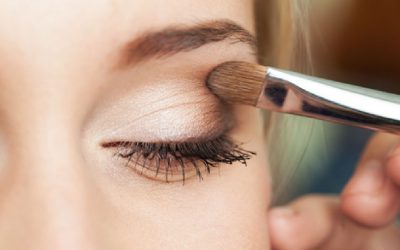Join us and learn about current cosmetics trends and what you need to prepare for in the future at the upcoming Cosmetics Regulatory Summit USA to be held by Chemical Watch on 3-4 October 2022 in Washington DC (+ virtual).
Delphic HSE will be speaking on Day 2 of the summit (4 October 2022), covering the topics below.
Following the event Delphic HSE will be holding an independent one-day workshop on Cosmetics Regulations.
Cosmetic Regulations in China – Understanding the pathway to product registration
The most fundamental change under the CSAR and subsidiary guidelines is that non-special use (or general) cosmetics are no longer subject to mandatory animal testing, whether they are produced domestically in China or imported. The previous reliance on animal testing presented an ethical dilemma for cosmetic companies wanting to tap into the China market, with many brands shying away from entering the China market due to wanting to avoid any association with animal testing and consumer perception. The regulation became effective on 1st January 2021. The CSAR is an over-arching legislation which paves the way for acceptance of cosmetic safety assessments in place of the reliance on animal testing, which along with the ethical concerns are often costly and time consuming. In the fast-faced beauty sector, time to market is also important, and the acceptance of safety assessment for cosmetics in China can expedite the process and reduce the cost while still ensuring that products placed on the market are safe.
Delphic HSE was involved in the registration process of the first CSAR product registrations, under the new CSAR regulations. Delphic HSE teams remain active in the registration process of products for many of our clients, while our management continue to engage in authority discussion, adjusting to the regulatory changes. Delphic HSE is delighted to share our experiences, with the audience, proving real-life, pragmatic advice, to any brand or person planning to launch into the Chinese market.
EU & UK cometic regulations – The growing Divergences
From January 2021, The United Kingdom’s departure from the European Union will create a new regulatory landscape for organisations selling cosmetic products into both the EU and UK markets. The UK Cosmetic Regulation requires a UK-based Responsible Person to be appointed to take on the obligations for Product Safety & Legal Compliance (similar to the EU Cosmetic Regulation, No 1223/2009) as well as aspects related to labelling, claims substantiation, product dossiers, safety and product registration. Since the introduction of the UK Cosmetic Regulation, the industry has started to experience a divergence in regulatory requirements for cosmetics, between the EU and UK. Organizations that sell products into both the EU and UK must be aware of these divergences and better understand how these differences impact their products. Delphic HSE will share our experience of managing these divergences, offering practical guidance on what to consider, when selling cosmetic products into both the UK and EU.
For many companies, Delphic HSE acts as the Responsible Person (RP) for cosmetic products being sold in the UK and the EU. To ensure the minimum impact on our clients, we have made suitable arrangements to comply fully with both the EU & UK regulations.
Speakers:

Ray Boughton
Managing Director

James Wakefield
Director, APAC
Summit Details and Booking
For more information and to book your place please visit the Chemical Watch website.
Latest Blog Articles
Cosmoprof North America and IBA 50th Anniversary Celebration
We are thrilled to announce that Delphic HSE will be attending two major events in Las Vegas this July!
7th International Conference on Toxicity Testing Alternatives and Translational Toxicology
Our Global Technical Director Dr James Wakefield and APAC Manager Dr Alec Kor have been invited as guest speakers of the 7th International Conference on Toxicity Testing Alternatives and Translational Toxicology.
Safety in Beauty 2024
Delphic HSE is sponsoring the Safety in Beauty Conference to be held on 6th March 2024 in Central London


